‘Sleep is a necessity, it’s not a luxury’
Sleep deprivation affects ability to do well in school
RYAN PUGH | DAILY EVERGREEN FILE
“I always think, ‘Oh man, if that person who pulled the gun out of their glove compartment on the freeway in LA had just been getting adequate sleep, I doubt that would happen,” said Kristine Petterson.
October 16, 2019
For many college students, sleep deprivation is almost a given. Over 70 percent average less than the recommended 8 hours, and the CDC reports that one in three adults do not get adequate sleep. The phenomenon has inspired countless T-shirts, mugs and even interior decorating making jokes about caffeine dependence.
But to Kristine Petterson, a certified sleep specialist, yoga instructor and doula, sleep is no joke – it’s essential to physical and mental health that many college students are missing out on.
“I always think, ‘Oh man, if that person who pulled a gun out of their glove compartment on the freeway in LA had just been getting adequate sleep, I doubt that would happen,’” she said.
Inadequate sleep is characterized by frequent wakings, early wakings, delayed sleep and an overall lack of sleep. It can lead to impatience and hinder problem-solving abilities. People with inadequate sleep can take things more personally and experience intense emotional reactions like road-rage, Petterson said.
“You have a whole bunch of extra cortisol and adrenaline to keep you alert and in the caveman days, that function was to keep us safe, to keep us from getting eaten, but now it’s just exacerbated by our stressful lifestyle,” Petterson said.
Students are prone to experiencing a lot of stress from their academics and social commitments, and this may lead to the detriment of their sleep quality, said Petterson. If students begin to stress about their lack of good sleep, then this anxious cycle continues.
“We feel really ashamed with our inability to take care of ourselves with sleep, and when you’re internalizing that shame and overwhelm, it compounds,” Peterson said. “And that’s insomnia, right there.”
Students believe that if they are getting enough sleep, then they are not being productive enough. This causes them to push through their body’s natural sleep cues and experience stress towards their sleep, Petterson said.
“Part of it is because of the pressure they are putting on themselves to perform academically. Part of it is because of the fun we’re busy having, right?” Petterson said.
College students commonly enjoy the freedom of doing whatever they want when they want, Petterson said, and it’s common for college students to stay up until 2 or 3 p.m.
It is important for students to experience all that college life has to offer, but without moderation, it can hurt a student’s overall health, she said.
“Sleep is a necessity, it’s not a luxury,” said Dr. Vinod C. Mehta, lung and sleep physician specialist at Pullman Regional Hospital.
During sleep the body heals itself physically and strengthens itself mentally, Mehta said.
Memory is also consolidated in sleep, he said. One-third of our life is spent sleeping, and is crucial to the other two-thirds of our life,
Unfortunately, when it comes down to sacrificing either activities or adequate sleep, student’s sleep hygiene is usually the one to suffer, Mehta said.
“If our bodies were trained in the last couple of decades, then we’d think that six hours of sleep is great […] But that’s antiquated and if you allowed yourself to catch up on the sleep you needed, after five days to two weeks, your body would start consistently sleeping more,” Petterson said.
To correct their sleep difficulties, some may resort to using various sleep medications, but this can lead to unwanted effects, Petterson said.
“Many of the adult clients I work with today are coming to me because they need help getting off really strong pharmaceuticals,” Petterson said. “They’re not really effective in helping us get better sleep.”
Even mild, over-the-counter medications can be risky for students to use without guidance. With help and the right adjustments, many sleep issues can be approached physiologically, without medication, Mehta said.
“Melatonin can help some, but I don’t recommend people take melatonin on their own without a doctor’s help because it is over-the-counter and the doses are so wide,” Mehta said.
It is also common for people to treat alcohol as a sleep medication; many adults have a glass of wine before bed and college students drink at parties late into the night, Mehta said. This is a poor habit to form, however, because alcohol will only get a person into superficial, stage one sleep before waking them up as the alcohol burns out of their system.
“Alcohol is definitely a no-no, it should never be considered a sleep-aid, and it leads to chronic insomnia,” Mehta said.
Limiting alcohol, smoking and blue light exposure four hours before bed will contribute to better sleep. The mind needs time to unwind and these stimulants keep the brain too busy for sleep, Mehta said. Going to bed and waking up at the same time every day, regardless if it is the weekend or a weekday will help set a schedule for the body to follow.
“When we say seven to eight hours of sleep, we’re talking about seven to eight hours of quality sleep,” Mehta said. “If the quality is not there, then you will have to subject more time to allow yourself to sleep.”
The problem for many students is staying up too late while still having to wake up early for classes and other obligations. This conflict between one’s biological circadian rhythm and the rest of the world can lead to compounding sleep debt, which is consistently getting less sleep than needed, Petterson said.
“Between the ages of 16 and 25, the body clock is shifted later, so it’s actually quite normal for us to feel comfortable and confident and healthy going to sleep between 10-1 a.m.,” Petterson said. “The problem is then that we’re setting our alarms for 5:30 to get up to go do an ass-kicking workout or to get our schoolwork done and be prepared for the day or working jobs in addition to going to school.”
Petterson recommended taking a first step towards bettering sleep by identifying one’s stressors, expectations and mentalities through reflection or journaling. As soon as a student feels that they are experiencing sleep deprivation, they should begin reflecting and changing their habits.
“There’s a lot of talk about self-care in our culture right now, like pedicures and bubble baths, and I really believe that the ultimate care that you can provide yourself, your body, your mind and your heart, is getting proper sleep,” Petterson said.
Although some sleep doctors advise against naps, they can be a great tool for students to unwind and reduce their overall stress, Petterson said.
“Catch up on sleep,” Petterson said. “People have demonized naps and I am just like ‘No way man, I probably nap three days a week.’”


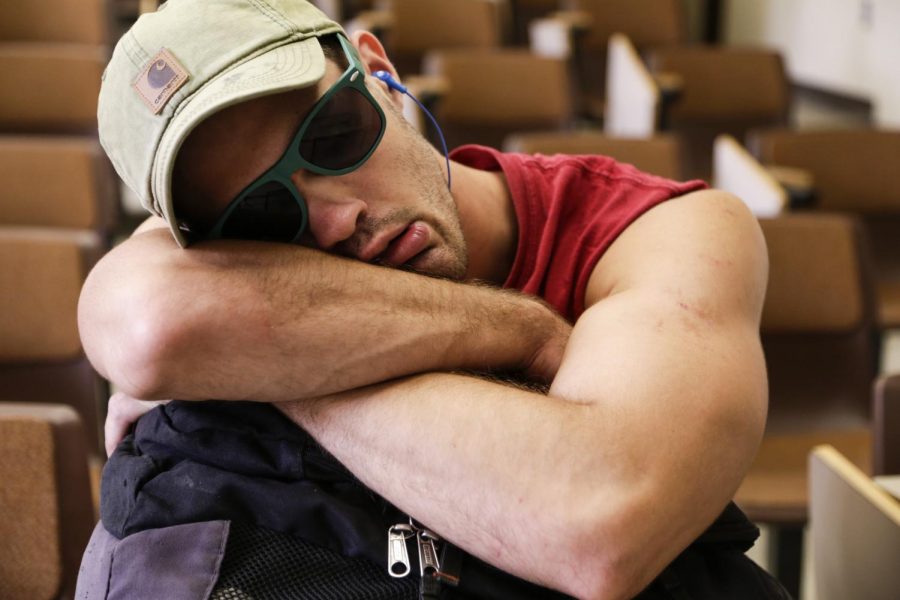







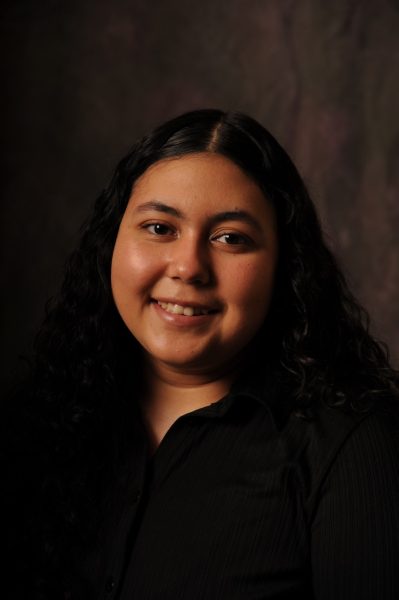


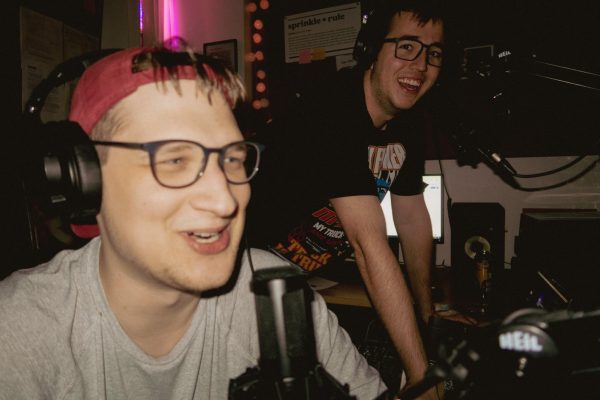
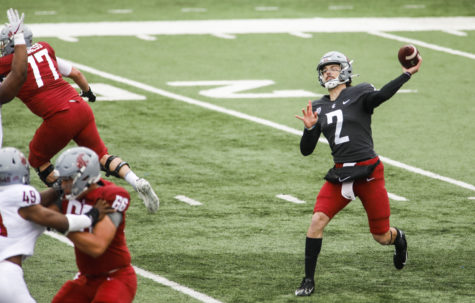


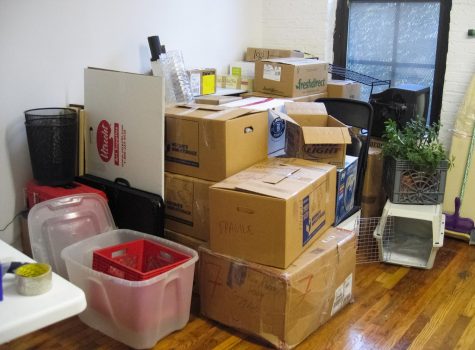
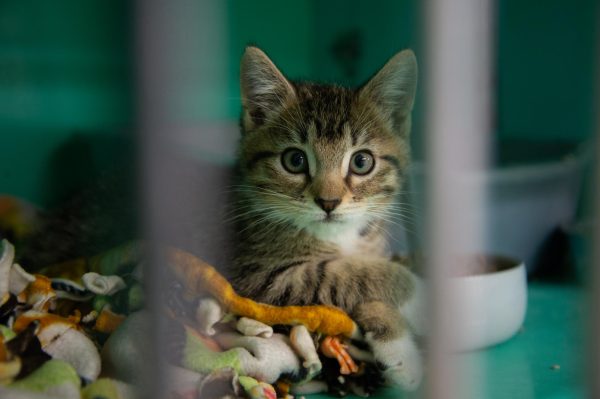



dj.johnson • Oct 22, 2019 at 1:42 am
Great Article